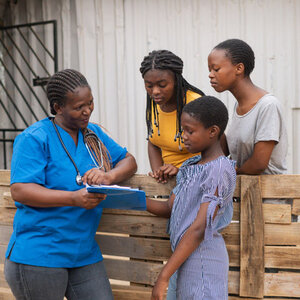Gates Foundation Awards $48 Million for HIV Prevention and Contraception Research
The Seattle-based Bill & Melinda Gates Foundation has announced three grants totaling $48 million to fund research into new uses for existing contraception devices that have the potential to prevent the spread of HIV and other sexually transmitted diseases.
The grants follow the recommendations of Global Mobilization for HIV Prevention: A Blueprint for Action, a report released by the Global HIV Prevention Working Group at the International AIDS Conference in Barcelona earlier this summer. The report offers a plan of action to prevent 29 million HIV infections over the next decade through a combination of new technologies and the expanded use of existing tools and strategies.
Women's Global Health Imperative at the University of California, San Francisco, a joint program of the university's AIDS Research Institute and the department of obstetrics, gynecology, and reproductive sciences, received a grant of $28 million to continue testing the diaphragm as a potential prevention method for HIV and other sexually transmitted diseases. The study will be conducted among 4,500 women in southern Africa and builds on a previous study which showed that women in Zimbabwe were eager to use a method of contraception that they are able to control.
In addition, the foundation awarded $11.9 million to the Contraceptive Research and Development Program at Eastern Virginia Medical School to accelerate its research on microbicides that are effective as contraceptives and prevent the spread of HIV and other diseases, and $5.8 million to the Rakai Project at Columbia University's Mailman School of Public Health for a study in Uganda that seeks to determine whether male circumcision reduces the spread of HIV and other diseases.
"Approaches like those announced today that combine innovative uses of existing tools, the development of new technologies, and behavioral changes that promote shared responsibilities could provide new opportunity and capacity to substantially decrease the number of new HIV infections," said Helene Gayle, director of the Gates Foundation's HIV/AIDS & TB Program and co-chair of the Global HIV Prevention Working Group. "These grants advance the strategy of combination prevention, attacking risk factors and risk behaviors in multiple, reinforcing ways. They also could provide greater options for women's protection against HIV and other STDs."





